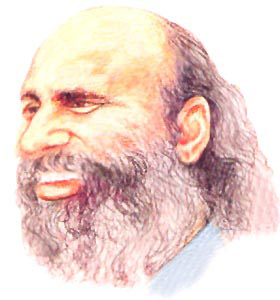 One of the famous saints in the contemporary India, Swami Jinendra was born on 20th October 1948 in a middle-class family, at the city of Mumbai in Maharashtra. Swami Jinendra earned a lot of fame among his neighbours and relatives for being very brilliant since his childhood. He showed extraordinary intelligence both in studies and in extra-curricular activities and he went to U.S.A at a very young age, for acquiring higher education. He was the first Indian engineer to receive an Industrial scholarship award from the Society Manufacturing Engineers, U.S.A.
One of the famous saints in the contemporary India, Swami Jinendra was born on 20th October 1948 in a middle-class family, at the city of Mumbai in Maharashtra. Swami Jinendra earned a lot of fame among his neighbours and relatives for being very brilliant since his childhood. He showed extraordinary intelligence both in studies and in extra-curricular activities and he went to U.S.A at a very young age, for acquiring higher education. He was the first Indian engineer to receive an Industrial scholarship award from the Society Manufacturing Engineers, U.S.A.
Swami Jinendra`s life turned to spiritualism, once he married Shakuntala in the year of 1973, as his wife Shakuntala became the first inspirer to influence him leaving a spiritual life. However, Swami Jinendra never attached himself to the religion and the rituals of any sect, and he also never thought about the soul or karma reincarnation, like most of the other saints. He did not even seek for a spiritual guru or make any specific efforts in the direction of spiritual growth. However, Swami Jinendra has experienced an incredible lightness, a limitless sense of total freedom on 20th January 1994 and he always reminds people by saying that "We can prove anything by reason, logic and statistics but not truth".




















